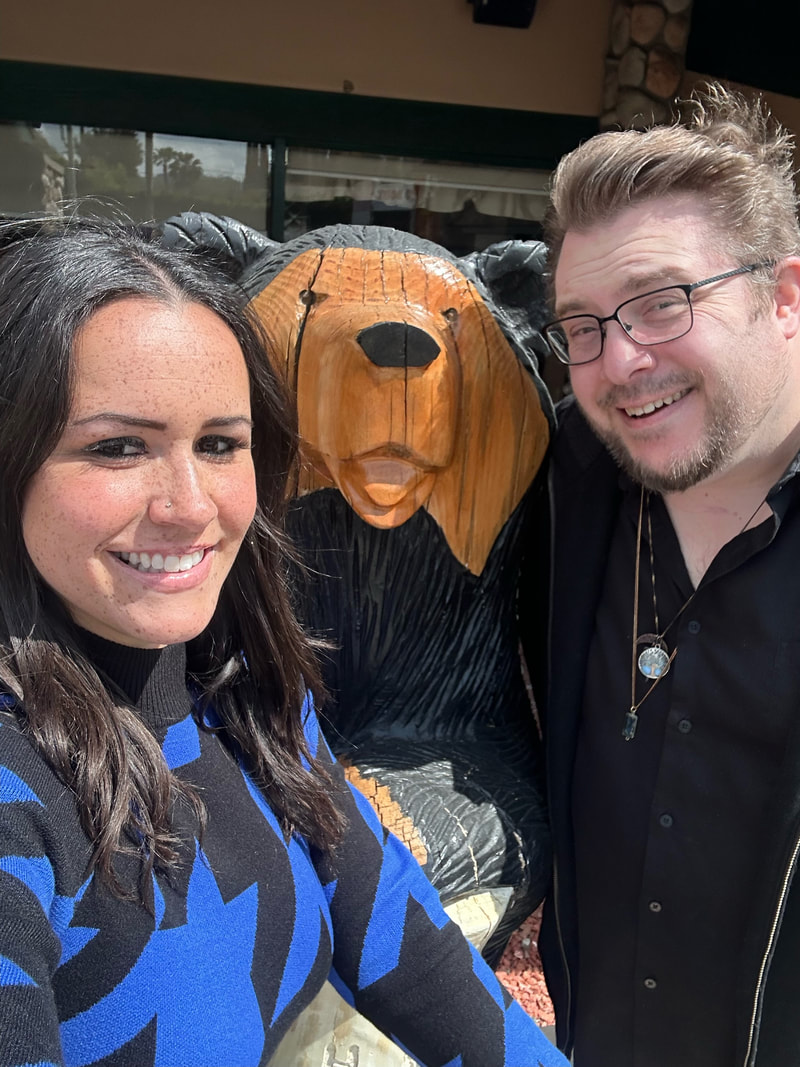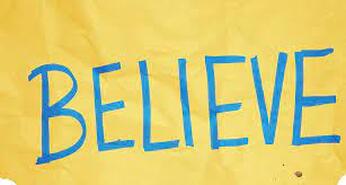|
When I started doing stand up comedy ten years ago, I wasn't sure how to begin. I had been hitting a few open mics a week, and all I found was that parking in Los Angeles was worse than I thought, and these bucket mics are totally rigged. So I decided the best way to get up at least once a week and get some feedback, I'd take a comedy class. My first class at Flappers was with 5 very nice people, one who would become a great friend and an instructor, who would become my mentor. The class lasted 6 weeks. I built out 5 minutes of material. It was a great experience. And then I found out comics really hated comedy classes and thought they were a waste of time and money. And that's also when I figured out, a lot of older comics who had accomplished a lot with no competition had just as many opinions as those with very little experience and a lot more opportunities.
Let me start by saying that I believe in comedy classes, if done effectively, and I believe that there are many roads to becoming a professional comedian. But I can say, based on teaching over 2,000 students the past 5 years, that there are a lot of scammers, swindlers, and liars teaching comedy like the snake oil salespeople they were born to be. Here is a breakdown of what a comedy school or instructor should be and how to smell a crook from a barstool's difference. Why Take a Comedy Class? Often, comics find the idea of comedy classes "offensive." They have this idea that you can't teach funny. And in some ways they are right. A comedy class or workshop cannot teach you how to be funny, but they should teach you how to be the funniest version of yourself. As a life long educator myself, ranging from Sunday School for kids to Critical Thinking at the college level, as well as a wrestling coach, I understand we are all inherently limited in talent and skill. But everyone has some skill, and a class can give direction to maximize that skill. This goes for improv classes, writing classes, MMA classes, painting classes, etc. For some reason people seem to think taking piano lessons are okay, even if the person only wants to learn for fun, but if a person wants a few pointers on how set ups, punchlines, and personas work, they are participating in a scam. That's a barbaric thought. There are plenty of people qualified to teach stand up to new comics and help revise a veteran' act with a few suggestions. In fact, green rooms are mini-classes, where comics give advice and ideas. It's just most people don't get into those green rooms in their fist 3-4 years. But there are also people who never did stand up or did it at a higher level, and yet for some reason they feel the calling to take $400 from people without giving them the tools to decide how far they want to go. These people are casting directors and ex-bookers who see the wide eyed star gazers and exploit them. When I took my first class, I asked the instructor his background. After realizing he'd been a working road comic with numerous credits, I decided to take the class. Had it just been some college manager with no real comedy chops, or a booker who never leaves their club, I would have been more resistant. So here are a few things to look for when debating who you should pay money to for comedy advice. Comedy Instructors Should Be ACCOMPLISHED Comedians If you are going to ask for advice from a comedian, you should ask someone you respect. If you are going to PAY for advice from a comedian, you better pay someone who is where you want to be one day. When I took over Flappers University, I had two major TV stand up credits and had worked at Nickelodeon. I was opening for comics who had been on Letterman. And I was headlining shows around Los Angeles. I was getting paid regularly for shows. I had a real career. That was 2019. Today I'm on four booking agency rosters, have a Dry Bar Special, a Laugh on Fox spot, have toured all over the country, and I'm a publish writer and sought out public speaker for events. I've even converted my comedy talents in to other job opportunities - like contract work for biotech companies (writing training sketches) and headlining OSHA speaking events. I consider myself qualified to tell people how to start and maintain a comedy career that fits them and their goals. You'd be surprised how many schools are ran by casting agents, washed up bookers, former improv actors who never did stand up, and people who read Judy Carter's book and stole the formulas. Before you take anyone's class, please Google them. If they don't have anything worth watching, then they aren't worth giving your money to. Comedy Classes Should "Teach" a Philosophy and Structure Many comics have told me they took classes before and the instructor would throw ideas at them and tell them to try that. Whether that idea was play a "character" or "just say these things on stage." There was no philosophy. No real breakdown. No actual thought of what types of jokes people should start off writing. For me, the "write from a place of personal truth" philosophy worked best. I'm not a fan of comics starting out with observational humor that might work with their buddies but will confuse strangers. If your first joke is about Taylor Swift, then you've already lost me. She's a talented billionaire with a billion fans. You're a middle age dude who paid to take a class. Maybe start with your own insecurities, and let's go from there. If your instructor cannot sum up their philosophy in a few sentences, then stay away. Or if they say, "I'll help you get booked at all the clubs..." then run away faster than the knights in Monty Python from rabbits. Another component is the classic set up - punchline structure. If they aren't able to help you structure your jokes to have clear set ups and clear punchlines, then it's a waste of time. Starting out in comedy, you get 3-5 minutes at open mics, so you want a joke every 20-30 seconds. If the instructor says, "Just tell a funny story" or "just be comfortable" on stage, then they are not helping you. There is a method to the madness, at least when starting out, and the structure part should be clearly out there in the objectives. Multi-Week Classes Should Have 5-10 People If you ever take a multi-week class and it has over 11 people...run! I always liked 10 people, but once you get to 12-15 or even 20 people in a multi-week class, there is no time to actually break down your jokes. If the class looks like a cash grab, it probably is. Obviously, there are exceptions, but I've found, when instructors want a lot of students in a feedback class, they either are feeding their own ego or trying to pay their bills on the backs of aspiring comics. Instructors should be a regular working comic, not just a comedy teacher. I would also add, your class should donate a solid 10-15 minutes of time to you personally. There should be at least 5-7 minutes of material time, followed by 5-6 minutes of constructive feedback, and an opportunity for classmates to add thoughts. If you aren't getting solid feedback, then what's the point? If you take a one day workshop, that's different. Learning how to get booked, emcee, or the "rules" of storytelling could hold a lot of people in the room (in person or zoom), since these workshops require less interaction. It's important that you research the comics teaching them. I know of people teaching "writing for Late Night" who never wrote for a show. I know comics teaching classes on being an emcee who don't emcee outside of their club. I know comics who teach social media classes with no following. You want to be careful, because a lot of these scammers just steal other people's class notes, but then when Q & A time comes, they're confused and speechless. Don't Fall For Big Promises If you take a class and the instructor is promising you this will lead to better gigs down the road at big clubs...run! First off, if you are in the class stage of comedy, then you are not in the paid gig stage of comedy. Nor are you in the getting passed by big club stage. They have talent already. Too often I hear people tell me the instructor promised bookers from clubs would be at their showcases, and then it turned out to be a bringer producer who runs scam bringer shows with hacky title names like Suck These Nutz Comedy or Shimmy Shitty Show. Then the instructor tells students to do those shows, and then the bringer producer tells the comics they have to sign up for classes again to get new material for the next bringer show. Talk about a pyramid scheme. Just a wolf in sheep clothing. If you are taking a class to get into a club's good graces, I would encourage you to lower your expectations. I remember one year a whole group of advance students at a club comedy class thought they would get feature and eventual headliner spots, only to be asked to produce their own semi-bringer shows where they could headline themselves (at 20 minutes max). The club or school has no desire to make you famous. They have no desire to foster talent to become big time stars. They want pre-packaged social media stars and upcoming talent associated with bigger name comics. They want them on the ladder up, so they can eventually get them back to sell out a weekend. They do not see students as anything more than open mic hosts. Or unpaid main room hosts, if they meet demographic requirements. Let's just say older comics get the door for often than stage time. So if you take a class and they promise club bookers, better spots, etc. just...run. Make Sure You Don't Go Broke In the video above, I discuss this in better detail. But I can't tell you how many people I know who spent a lot of money, thinking the fast track to success is taking classes. Classes are a supplement to the hard work, not the basis. I understand that comedy instructors are trying to make money, but if they are charging a fortune to start, then they clearly are trying to cash grab before you realize it's not a legit way to become Joe Rogan's opener. One time a student told me he spent over $20,000 on classes. He wasn't where he wanted to be, and his family was not happy. You think? I would encourage you to spend no more than $1,000 in your entire class journey. That's 3-4 classes, depending on the school. After that, you should be pointed in the right direction. If you still feel the need to take classes, then it should be for community instead of career. Part of being a great comic is trusting yourself and not "asking permission" of a coach or mentor. As long as you are in classes, you will always rely on someone else. And the price will be more than just what you spend your money on; it'll be your time as well. Final Thoughts There is so much to write, but we all have to get back to our regular lives. At the end of the day, a good comedy class can be a fun experience. But don't get caught in the trap that classes make comedians. At some point you should fly the nest and flap your own wings. Final final thought: Don't let anyone make you feel bad or less than for taking a class. Most comics just live and bomb at open mics. That's their journey. But if you want to avoid the toxic nature of bar mics, then a class can save you a lot of that frustration. But just don't expect one student showcase to change your life forever. Because, if you do, then not only will you find yourself angry and bitter, but now angry, bitter, and broke.
0 Comments
Leave a Reply. |
Paul Douglas Moomjean Blog's About What's on His MindBlogging allows for me to rant when there is no stage in the moment to talk about what's important and/or funny to me. Archives
July 2024
Categories |


 RSS Feed
RSS Feed
